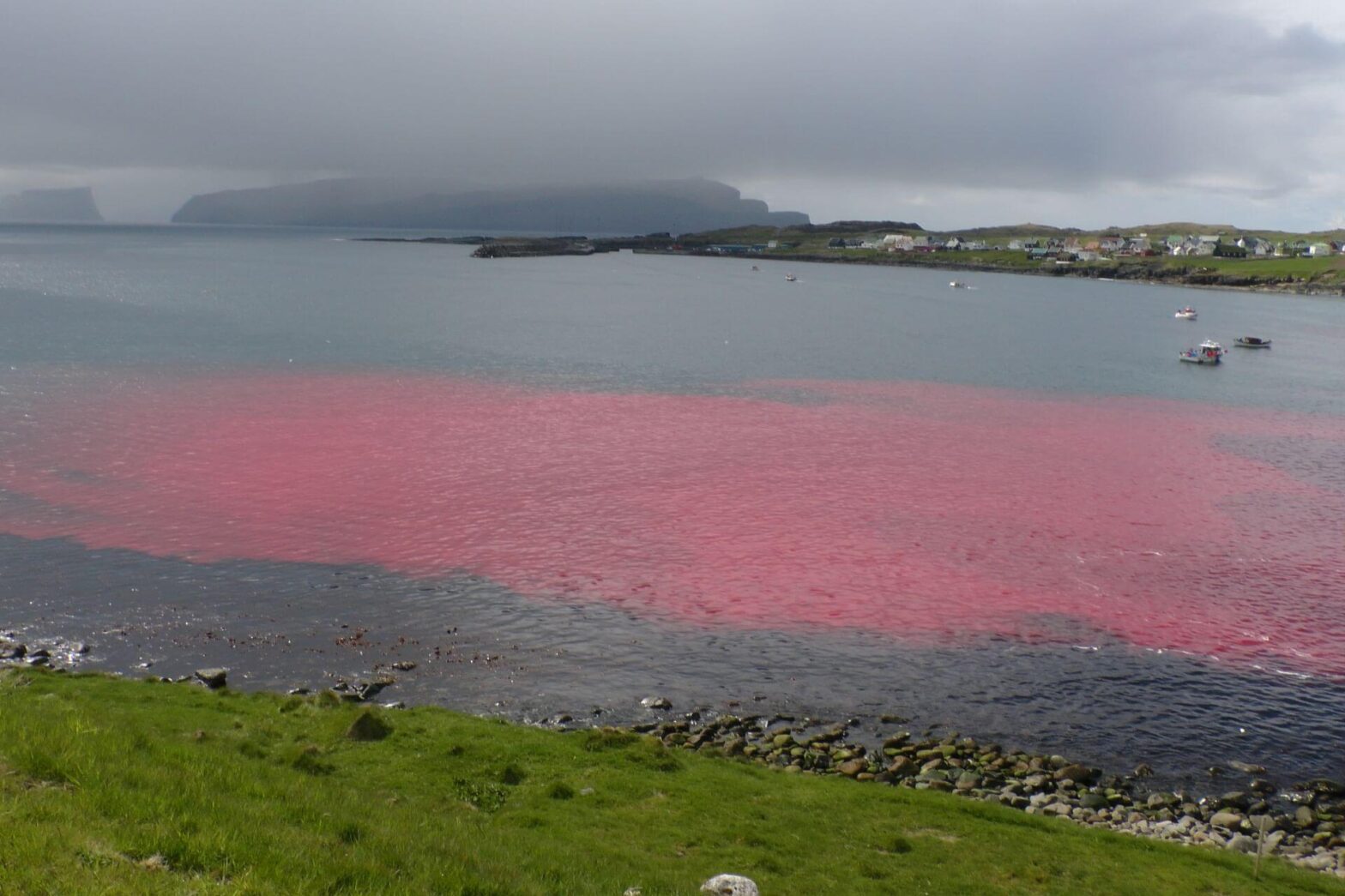Faroe Islanders kill some 100 bottlenose dolphins in a single cruel hunt
This morning around 100 bottlenose dolphins were driven ashore in Skálafjörður in the Faroe Islands. Once ashore it appears that this whole school was killed, and it is likely that this was done by using knives or other sharp implements to cut into the necks of the animals. Killing bottlenose dolphins is a further escalation of whale and dolphin killing in the islands and OceanCare is shocked by this latest callous act.
Bottlenose dolphins are strictly protected by the EU’s Species and Habitats Directive which applies to Denmark, but the Faroe Islands are not member to the European Union. This dolphin species usually lives in closely bonded social units. Today’s hunt has potentially exterminated a whole social unite, forever.
The Faroe Islands are infamous for their ongoing killing of small cetaceans, principally pilot whales, but their killing of dolphins came into sharp focus last year in September when they drove some 1,400 Atlantic white-sided dolphins ashore in a single hunt. This caused outrage all over the world and also in the islands themselves. The government then initiated an inquiry into the dolphin killing. This concluded just a few days ago with the news that they would put an annual cap on the take of dolphins of 500.
Along with many others, OceanCare opposes this further enshrinement of whale and dolphin captures into law in the islands. Our statement, made with other European groups about this and released this week, is attached.
It was assumed that the 500 limit applied to the white-sided dolphins. However, this capture of a large group of bottlenose dolphins, a totally different species, indicates that the dolphin hunters may intend to claim additional quotas for any dolphin species unfortunate enough to come into their waters.
Nicolas Entrup, International Policy Director at OceanCare, comments: «We find it difficult to comprehend the rationale behind this latest kill of this amazing, intelligent and social animals and we call on those with any influence to do everything in their power to put an end to this shameful activity. It truly seems that the pretended evaluation of the dolphin hunts commissioned by the Faroe authorities has led to an even worse situation, ignoring science and blocking the much-needed change towards a new and peaceful relationship between the Faroese people and whales and dolphins.»
Mark Simmonds, Director of Science at OceanCare, adds: «Bottlenose dolphins are not a focus of the hunts in the Faroes Islands and have rarely been killed there in the last decade. So, this is a dramatic and deeply tragic turn of events. All dolphin species are highly sentient and, of course, the intelligence of the bottlenose dolphin is well known. What this means is that the members of this large group would have been aware that they were being hunted and they would have been aware, once stranded on the shore, that members of their social groups were also distressed and being killed around them.»
The Faroe Islands are a self-governed part of the Danish Kingdom and just 200 miles off the coast of Scotland. Whilst there is a long tradition of whale killing there, the islands are now relatively well off and there is no pressing need for meat resulting from these hunts. Elsewhere in Europe these same species are fully protected, including from intentional killing.

